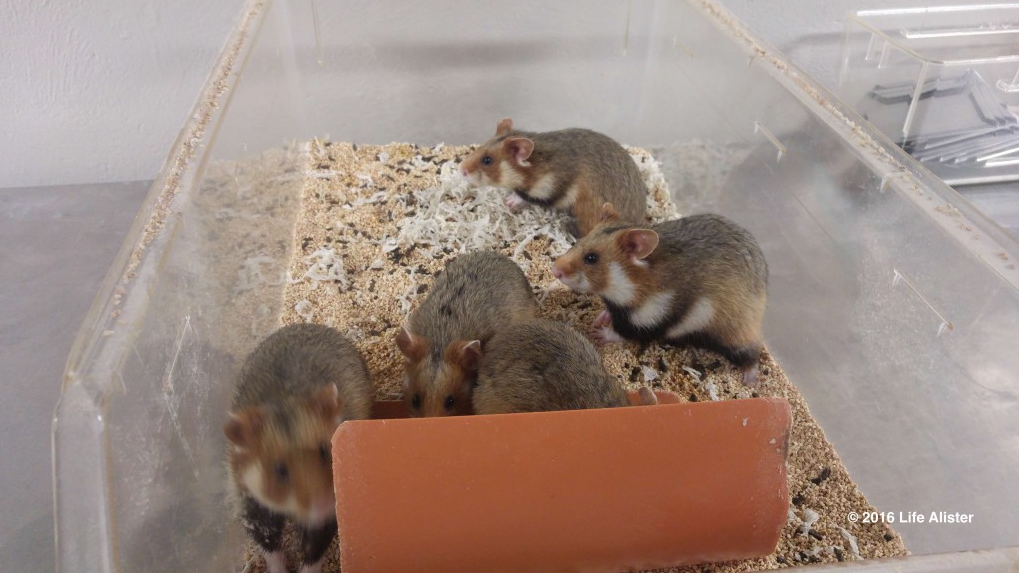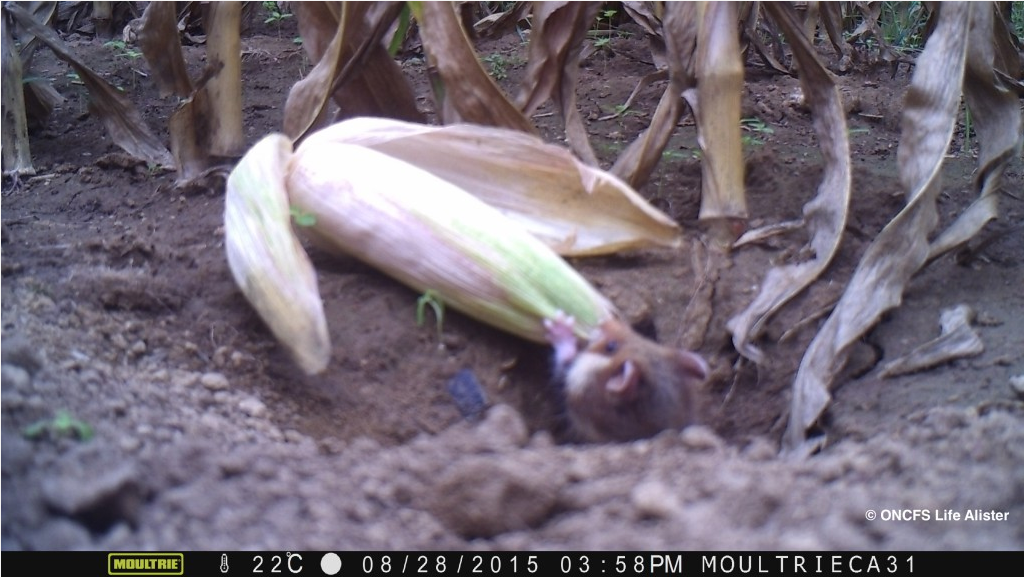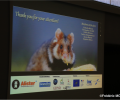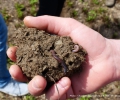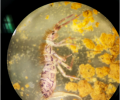A CNRS study sparks the interest in intermediate crops for European Hamsters
23 mars 2017While she was trying to understand how maize and wheat impacted the European Hamster’s reproduction, Mathilde Tissier, a CNRS doctoral student financed by the LIFE Alister programme, noticed that females nourished with diets mainly made up from maize (associated with clover, often used in intermediate cultures, or earthworms in order to imitate the omnivorous diet hamsters have when living in corn fields) developed inappropriate maternal behaviour resulting in a high rate of infanticides (approximately 95%).
The research team then highlighted the relationship between this behaviour and the lack of vitamin B3 in maize. A supplement in this vitamin restores appropriate maternal behaviour and a high breeding success (4-5 cubs per female). The consequences of this deficiency on European Hamsters made us think of a well known human illness, one which is caused by eating large quantities of maize, thus deficient in vitamin B3. This illness, called pellagra, is characterised by a condition of the nervous system leading to dementia.
This study, which was published in a famous British scientific magazine*, sheds new light on the European Hamster’s problems, whilst reinforcing the solution of intermediate crops. These innovative cultivation practices, currently developed and tested in a partnership between the Chamber of Agriculture, the ONCFS and the CNRS for the Alister project, seem promising for farmers as they are beneficial to the soil and to biodiversity, and could also allow the European Hamster to have a balanced diet required for its survival.
These results also show the high stakes involved in changing agricultural practices, which concern much more than the survival of just one species.
* This study, led by the doctoral student, Mathilde Tissier, in the framework of her thesis funded by the LIFE Alister Project and supervised by Caroline Habold and Yves Handrich, is now validated by a scientific protocol and was recently the object of a scientific publication in the Journal Proceedings of the Royal Society B-

